Baby Archie is the Randal family’s little miracle.
A planned C-section he arrived with little fuss, it wasn’t until they put him on Mum Carla’s chest and instead of gaining a normal, healthy colour, Archie stayed blue.
“They took him and they tried to get oxygen into him and he just wouldn’t maintain it,” Carla said.
Within minutes the Redland Bay family and medical staff knew Archie was in trouble.
● HOW A HOLE IN THE HEART SAVED EMILY
● LITTLE JOSHUA HAS JUST HALF A HEART
Archie, like thousands of babies across Australia was born with Transposition of the great arteries (TGA), one of a handful of congenital heart diseases affecting children and newborns for which there are no known causes and limited research.
This month national charity HeartKids is raising money to support families like the Randals and to invest in critical research to change the outcomes for babies like Archie.
FOLLOW REDLANDS COMMUNITY NEWS
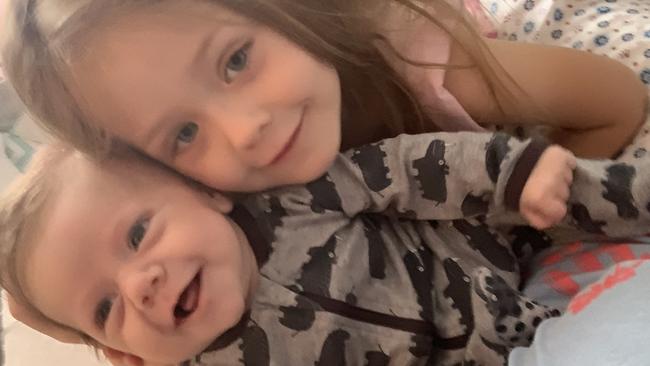
“It’s been a lot to take in,” Carla said.
“The Redlands (Hospital) had an idea of what it was but they don’t have the equipment to check his heart and so it wasn’t until we got to the Mater (Brisbane) they did the scans and told us.”
“It was awful, basically they said his only chance of survival was open heart surgery - an arterial switch operation.”
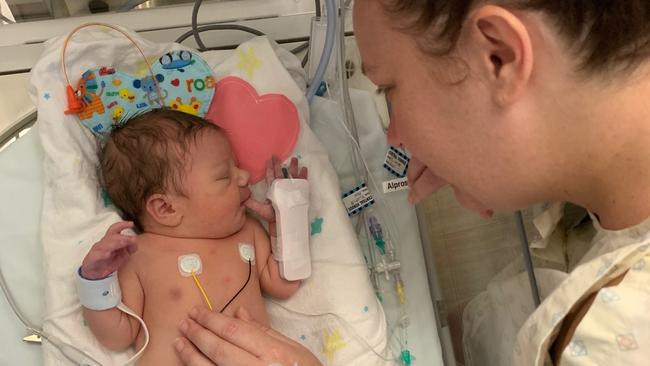
Archie was just seven days old when doctors performed the lifesaving surgery.
Described to the family as sewing together something that was as fine as a piece of hair, the enormity of what Archie was to undergo was overwhelming.
“It was so hard. Even though he was stable and he coped really well and you wouldn’t have known to look at him before his surgery that he was even sick .... it was really hard,” Carla said through tears.
“The amazing thing is the doctors do this every week, because there are so many babies born like this.”
“It really sends shivers down your spine. It’s not like near enough is good enough either - it’s either perfect or it’s not successful.”
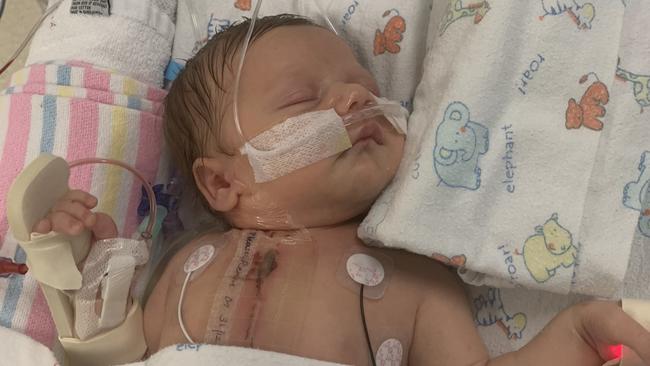
Archie is one of the success stories.
Now at just eight weeks old, and with his check up today, Archie’s family has decided to dedicate their journey to helping others.
Their campaign Do It For Archie is part of the national charity HeartKids’ February campaign.
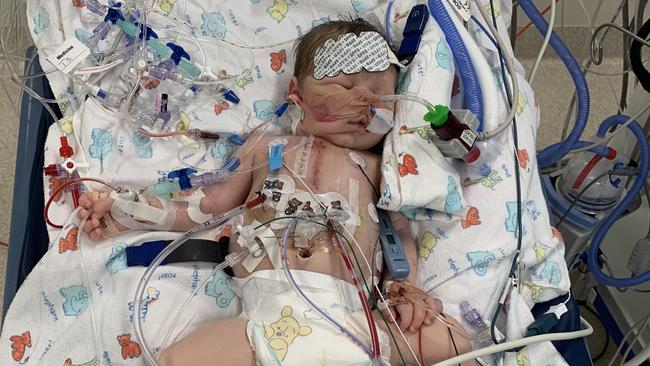
HeartKids, which supports families of children with Congenital Heart Disease (CHD), are raising awareness and funds to fight against the leading causes of infant death in Australia.
For the 8 babies born each day with heart disease, there is no known cure.
HeartKids is the only charity focused on funding the research, information and care that provide constant support for children, families and adults from diagnosis all the way throughout their life journey with CHD.
“HeartKids are there. They come and they introduce themselves. They have frozen meals in the fridge at the hospital for families,” Carla said.
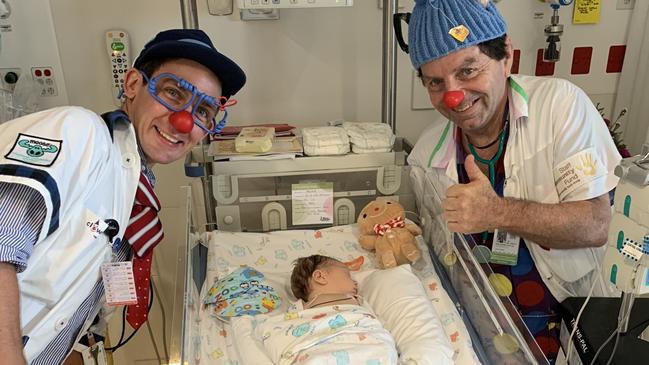
“We were unlucky enough to be there over Christmas and they dropped off Christmas presents for Archie and Tasman so Santa had been. They are amazing.”
Welcomed to the HeartKids family, Carla said now she wanted to ensure other families continued to be cared for the way she and Archie were.
“HeartKids are still asking if there is anything they can do,” Carla said.
“They are lovely, and for a charity I had never heard of ... there they were out of the blue.”
“It’s just so important that people know about this ... it can happen to anyone, your niece nephew, or your own child and HeartKids is who you want to be there.”
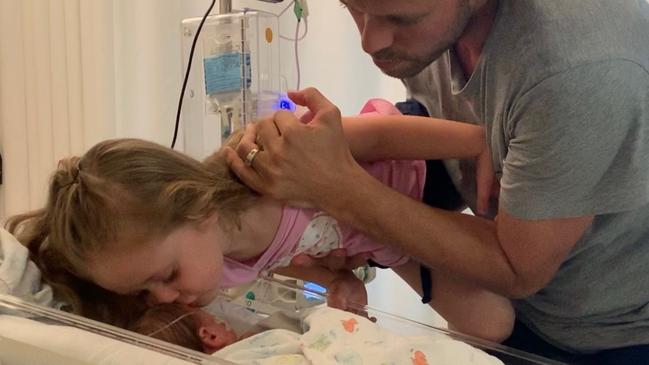
What is TGA
Transposition of the great arteries is a congenital (present at birth) heart defect. Due to abnormal development of the foetal heart during the first 8 weeks of pregnancy, the large vessels that carry blood from the heart to the lungs, and to the body are improperly connected. Essentially, the connections in the heart are “swapped.”
Normally, oxygen-poor (blue) blood returns to the right atrium from the body, travels to the right ventricle, then is pumped through the pulmonary artery into the lungs where it receives oxygen. Oxygen-rich (red) blood returns to the left atrium from the lungs, passes into the left ventricle, and then is pumped through the aorta out to the body.
In transposition of the great arteries, the aorta is connected to the right ventricle, and the pulmonary artery is connected to the left ventricle — the opposite of a normal heart’s anatomy. Source: Stanford Childrens Health.
Do it for Archie
The Everyday Hero Show Your Heart Campaign is running until the end of the month to raise awareness and money for the incredible charity HeartKids
Help Phillip and Carla raise money to support local HeartKids and research into CHD.
More information on Carla and Phillip’s campaign here
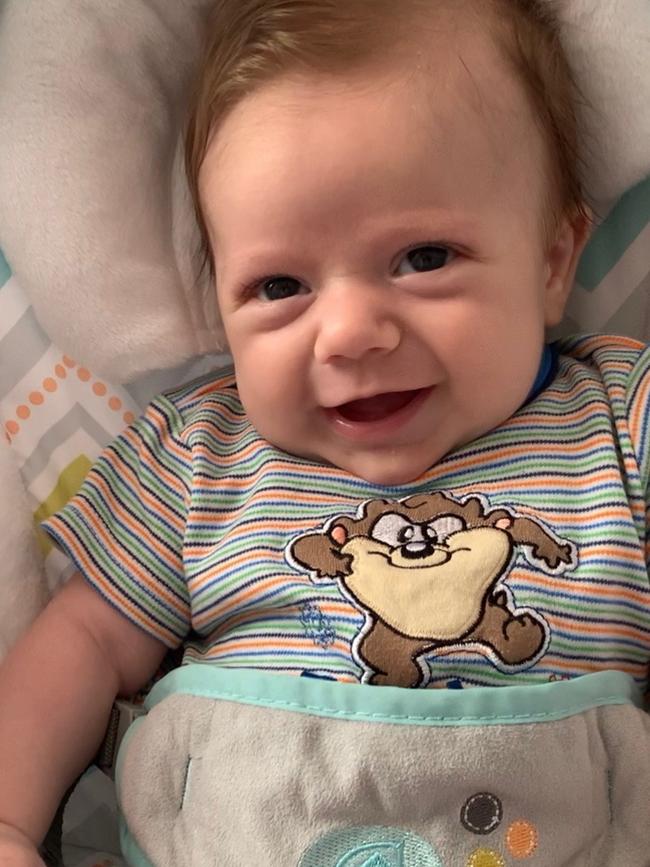
CHD CAN INCLUDE THE FOLLOWING ABNORMALITIES:
Aortic Valve Disease
Atrial Septal Defect (ASD)
Atrio-ventricular Septal Defect (AVSD)
Coarctation of the Aorta
Cyanotic Congenital Disease
Mitral Valve Disease
Persistent Ductus Arteriosus (PDA)
Pulmonary Atresia
Pulmonary Valve Disease
Ventricular Septal Defect (VSD)
Single Ventricle Pathology
Tetralogy of Fallot (ToF)
Transposition of the Great Arteries (TGA)
Source: HeartKids
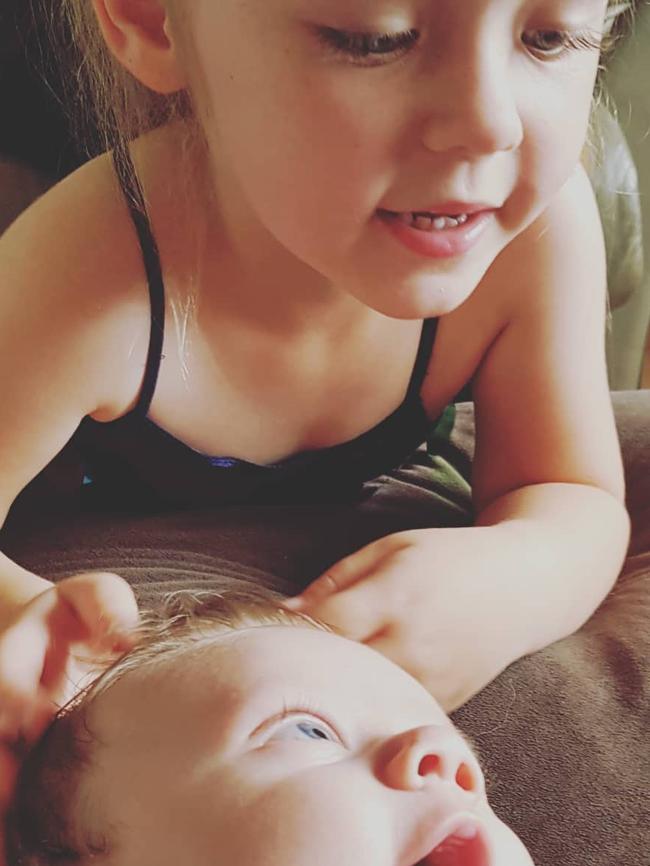
HEARTKIDS PURPOSE
HeartKids is the compass to help navigate the lifetime journey of the 64,000 Australian children, teens and adults affected by congenital heart disease. Our aim is to help them -and their families - to lead the most fulfilling life possible and to reach their personal goals.
We are the voice for all people impacted by congenital heart disease - the largest cause of infant death in Australia.
Our work is focused on our four pillars of Advocacy, Information, Research and Support.
Source: HeartKids.

Add your comment to this story
To join the conversation, please log in. Don't have an account? Register
Join the conversation, you are commenting as Logout
Dozens stranded as tide runs out on island barge
A misjudgment left a Moreton Bay island barge stuck in mud, sparking outrage among residents and reigniting debates over the islands’ transport strategy.
‘Revenue-raising weapon’: Hundreds of parking fines to be contested in class action
A Brisbane IT expert is preparing a class action against Redland City Council, alleging thousands of parking fines at ferry terminals were issued under questionable regulations.